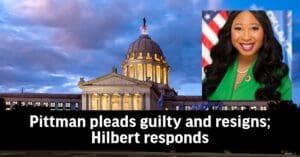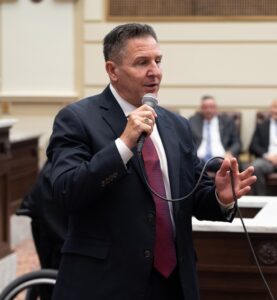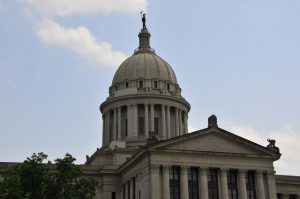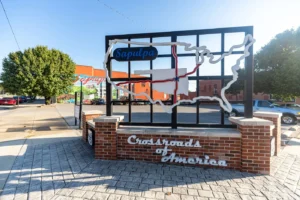A $2.6 million shipment of hydroxychloroquine, bought a year ago as a promised panacea in the treatment for COVID-19 traveled a somewhat unusual route before it wound up at its final destination.
The 1.2 million doses of the drug approved by the FDA only to treat lupus, rheumatoid arthritis, and prevent malaria, were shipped from the California distributor FFF Enterprises in Temecula, California, to Beggs Pharmacy in Pryor. The state paid for the hydroxychloroquine with money borrowed from fees generated by medical marijuana licenses.
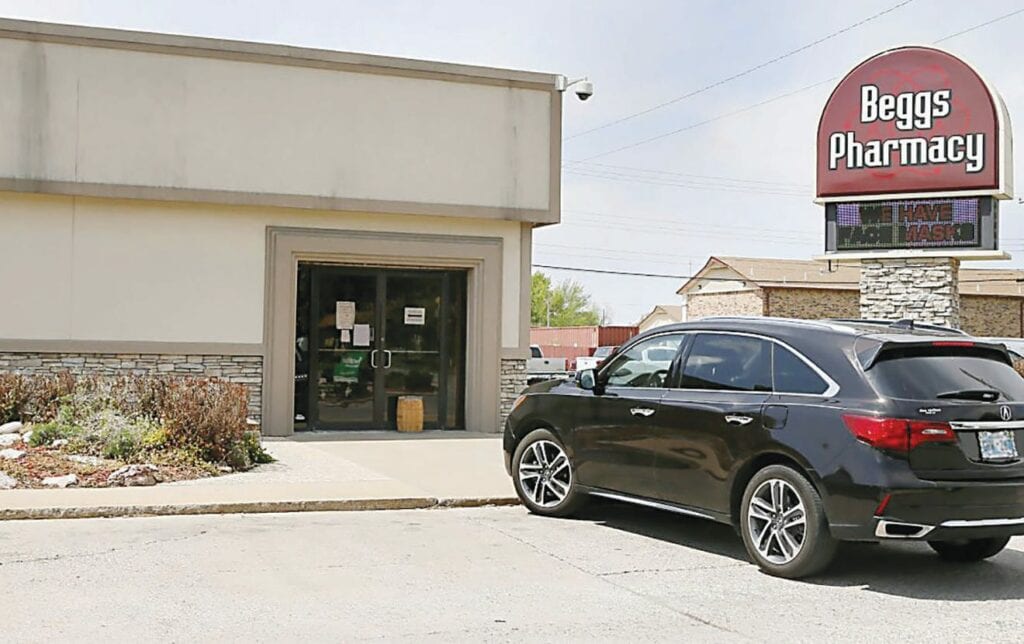
The hydroxychloroquine is currently housed in a warehouse at an undisclosed location. The Oklahoma State Department of Health seems unwilling to explain what it will do with the drug or why it went to a small pharmacy in Pryor.
Oklahoma Watch, a non-profit, non-partisan investigative journalism organization obtained records that show the drug will expire in December.
According to an April 3, 2020 memo, early on in the pandemic, former Secretary of Health Jerome Loughridge authorized the purchase of up to $3 million of hydroxychloroquine from the California-based company.
Loughridge approved another $3 million to purchase badly-needed materials and equipment in a memo sent at the end of April to Gino DeMarco, a deputy director at the Oklahoma Tourism Department and a logistics expert who temporarily served as the state’s PPE supply chain leader. Both Loughridge and DeMarco are once again employed by the private sector.
Loughridge later said the state was bidding against much larger states for pandemic supplies.
“It was clear that we were showing up to a gunfight with a butter knife,” Loughridge said in a March interview. “Our first attempt to make a buy of masks, we lost. We had gotten there as quickly as you possibly can, we had the authorized funds and we missed it. I thought, ‘We have a major problem when we have all the states bidding against each other for a limited supply of critical equipment.’ That was a real moment when we thought, ‘OK. We absolutely have to source this, whatever it takes.’”
At the time, the state had not yet received money under the federal CARES Act, therefore the state had to find a way to pay for the necessary PPE and the hydroxychloroquine.
At the time, the medical marijuana license fund was one of the few state financial accounts with a surplus.
normally the state can’t use fee revenue for other government purchases. However the State Legislature had granted Governor Stitt additional powers under the Catastrophic Health Emergency Powers Act, a law passed in the aftermath of the 9/11 attacks but never implemented in Oklahoma prior to the COVID-19 pandemic.
Governor Stitt said at a press conference in late April that he knew the expenditure would be reimbursed. “We knew we were getting reimbursed for that,” Stitt said at the time. “Also, in early March, hydroxychloroquine was also shown to be a treatment. So we went out and procured that as well. Now there’s some other evidence that it may not be as effective. But I was being proactive and trying to protect Oklahomans.”
OSDH could not explain why the shipment was sent to Beggs Pharmacy. The pharmacy’s owner, Derek Sien, the owner of the pharmacy deferred questions to the Governor’s Solution Task Force.
Clayton Bullard, a member of Governor Stitt’s Coronavirus Task Force, said the pharmacy’s owner also ran a distributing company, that was going to dispense the drug for a fee of $1.05 per prescription.
“The pharmacy lost money on that deal. They didn’t make any money,” Bullard said. “They were going to make money on their distribution fee, but because within four months of that product being acquired, the FDA retracted hydroxychloroquine to be used for COVID issues. So the pharmacy actually sat on it and stored it for close to nine months at their own cost and then never made a dime on it because there was no distribution of it.”
OSDH stated it had no records of any contracts involving Sien’s A&K Distributors LLC and hydroxychloroquine. However, Sien and his pharmacy were included in emails related to the hydroxychloroquine purchase last April, including confirmation of the nearly $3 million dollar order of hydroxychloroquine was being shipped to Beggs Pharmacy by FFF Enterprises.
Bullard said the hydroxychloroquine shipment is now in Oklahoma City. The health department would not confirm that saying it was in a “secret location because of security concerns but would not elaborate.
Attorney General Mike Hunter requested that State Auditor and Inspector Cindy Byrd conduct an investigative audit of the OSDH last spring. Stitt subsequently asked Hunter to look into other coronavirus-related purchases.
Byrd’s office issued a report on March 30 criticizing the health department for not adequately tracking $18.8 million in wire transfers used for buying PPE. According to the report, another $20 million was spent with no records of the equipment ever being received by the agency, including the 2.1 million dollar contract to buy masks from Tulsa bar owner, Casey Bradford, who only supplied a fraction of the masks after being paid in full.
Hunter’s office denied an Open Records Act request from Oklahoma Watch for emails and letters from his office to FFF Enterprises relating to the state’s hydroxychloroquine shipment.


